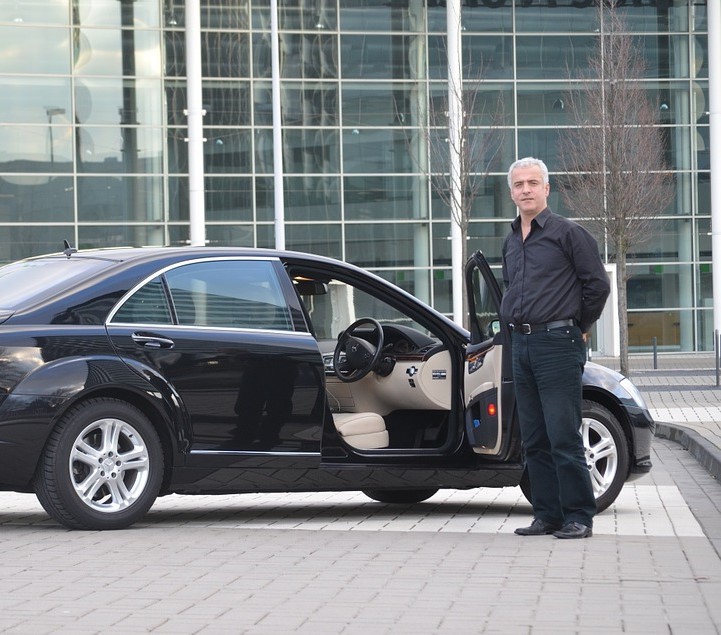ATTACKS ON OLDER DRIVERS and their right to drive seems to be a higher priority in certain quarters than other and more pressing road safety issues.
Despite figures showing older drivers are statistically less involved in serious or fatal crashes, the call for testing to identify older drivers who may be a danger to themselves and others continues.
The latest comes after a new study put 560 drivers aged 63 to 94 through their driving paces with a series of on-road and off-road driving tests. The findings published on JAMA (the Journal of the Australian Medical Association) concluded “There is an urgent need to develop evidence-based assessments to identify older individuals who may be unsafe drivers.”
Participants in the study were divided into three groups: a control group; a group with minor cognitive impairments; and a group with vision impairments.
About eight percent of the control group failed the driving tests, as did 11 percent of the impaired group and 20 percent of the vision-impaired group. In the off-road screening tests, the study identified 77 percent of drivers who also failed to pass an on-road test with a driving instructor. The off-road tests also cleared 82 percent of those who went on to pass their on-road test, indicating the tests correctly classify safe drivers.
Of course, drawing conclusions from these results is fraught with danger. For one thing, where are benchmarks that indicate how well other age groups would perform?
The study was led by Professor Kaarin Anstey, UNSW Ageing Futures Institute Director and NeuRA senior principal research scientist.
Her claim that road deaths among older Australians are increasing while the road toll is decreasing, she attributes to our aging population leading to more older drivers on the road and “because older drivers make more errors”.
She is wrong on a couple of counts. The road toll around Australia this year has actually increased in many states. Because there are statistically more older drivers on the road, a natural consequence is that they will be more highly represented in the road toll. Lumping all drivers over 65 as a homogeneous group is misleading (not only are there more older drivers, there are more older old drivers). And her claim that older drivers make more errors is unsubstantiated.

However, it is hard to argue with her claim that “These findings suggest that brief off-road screening tests could be a cost-effective, objective tool to screen older drivers to determine who might be an unsafe driver and to indicate referral for an on-road driving test and that both off-road and on-road testing can help identify those unfit to drive.”
Our only disagreement is that if such testing can make a real difference and be implemented without huge expense and inconvenience (all of which we doubt), there is absolutely no reason why such testing should be confined to older drivers.
Bad behaviour on our roads is endemic. Impatience, lack of consideration, road rage, ignorance of the road rules, deliberately ignoring road rules and other dangerous on-road behaviour is hardly limited to older drivers. It is rarely older drivers who drive unlicensed, unregistered and uninsured or are involved in high-speed police chases. Older drivers aren’t repeat offenders who continue to drive after multiple licence cancellations.
And yet it is, once again, older drivers being singled out for special attention.

Lose your licence?
Professor Anstey generously allowed that older drivers who fail a safety test won’t necessarily have to hand in their driver’s licence. Instead, testing can help identify drivers who require assistance or driving lessons in order to keep them on the roads safely.
Again, we ask, why is this limited to older drivers?
State by state older driver rules
At present, there is no nationwide screening program. As is the situation far too often across Australia, rules vary from state to state.
NSW
- Drivers aged 75 and above are required to undergo annual medical assessments
- Driver aged 85 and above must undergo an annual medical assessment, plus a practical driving test every second year
VIC
- No special requirements for older drivers. Drivers are require to self-evaluate and seek medical advice about their fitness to drive
QLD
- Drivers over 75 years must have a valid medical certificate and have it renewed by a doctor every 13 months
WA
- Drivers aged over 80 are required to undergo an annual medical assessment before renewing their driving licence
- Beyond the age of 85, they may also be required to undergo a practical test
SA
- Drivers aged 75 and over must complete a self-assessment form each year
TAS
- Drivers aged over 65 are only permitted to renew their licence for five-year periods
ACT
- Drivers over 75 must get an annual medical examination from their doctor
NT
- No special requirements applied to older drivers, but the NT Registrar of Motor Vehicles can order a driver of any age to prove they are medically fit and can pass a driving test

Taking responsibility for yourself
Driving is a privilege, not a right, and we all have an obligation that we don’t become a risk to ourselves or others on the roads.
Ask your doctor for advice about your fitness to drive, especially taking into account any illness, disability or medical condition you may have, or any medications you may be taking.
Any relevant conditions should be reported to you state or territory agency. Failure to report a medical condition, impairment or disability can not only jeopardise your life and the lives of others but may invalidate your insurance cover.
seniordriveraus has regularly raised issues concerning older drivers on the road, including stories about voluntary licence surrender (read it here), bad older driver behaviour (read it here), how older drivers can stay safe on the road (read it here) and others.
If you’d like to learn more about issues affecting older drivers, retirement, health, superannuation, travel and much, much more, subscribe to YourLifeChoices (it’s free) at https://www.yourlifechoices.com.au/ and listen to the podcast (including interviews with seniordriveraus) hosted by Kaye Fallick and John Deeks at https://www.yourlifechoices.com.au/podcasts/mind-your-own-retirement
